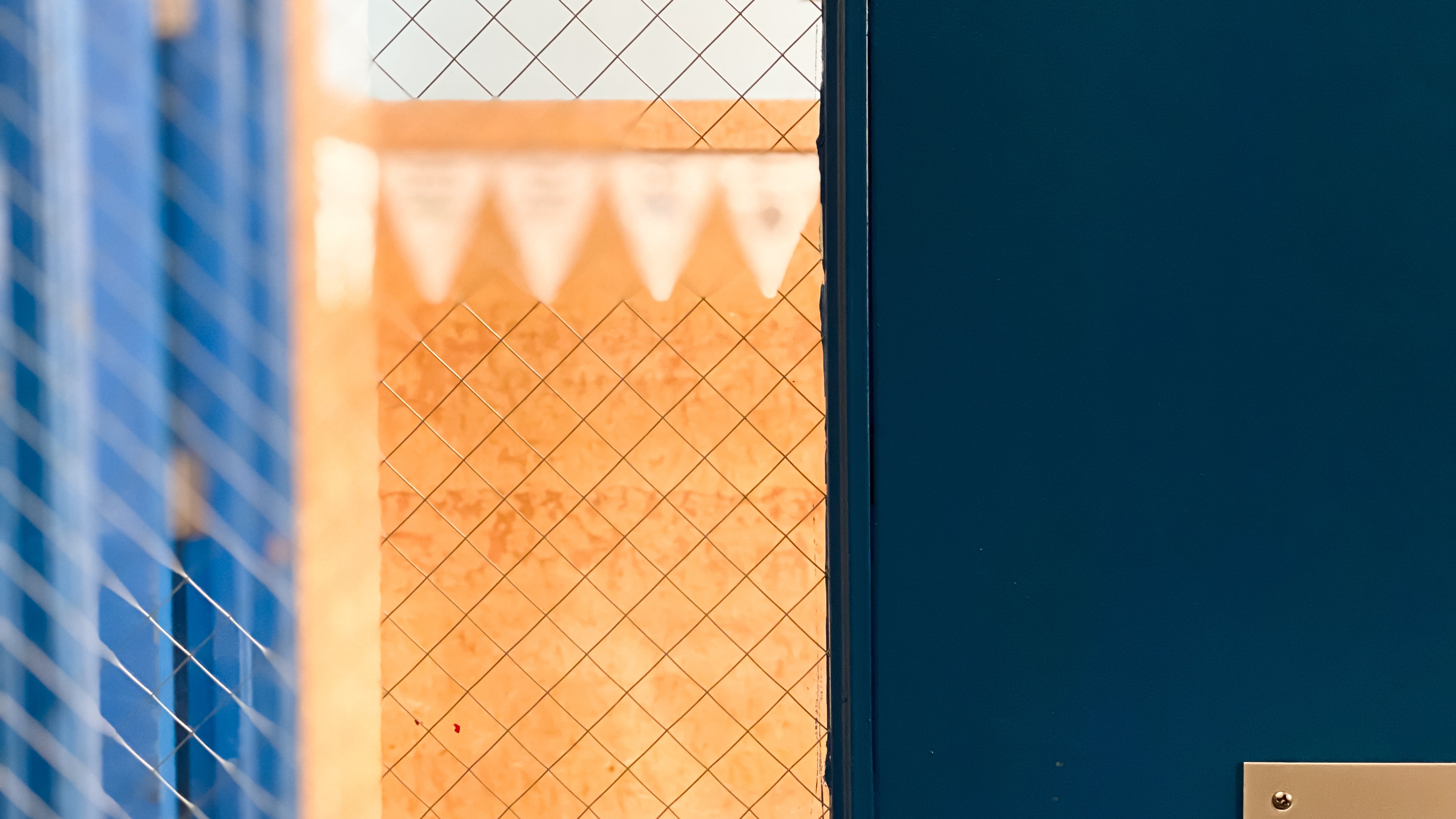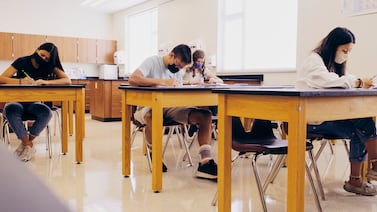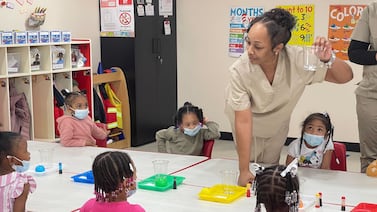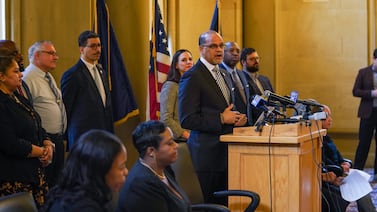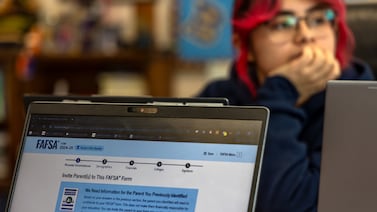Just before my daughter’s second birthday, I excitedly emailed her preschool teacher to coordinate a birthday celebration with peers. Then came the teacher’s response, “Unfortunately parents are not allowed in the classroom but we can take some pictures for you!”
Her response left me hurt, disappointed, annoyed, and angry.
Even though I read, write, and research on family-school relations, I had somehow chosen a school with “come if we call” tendencies. In these schools, the staff decides who enters the building. Parents are expected to get advance permission to visit and to show up when invited. This approach suggests parents don’t actually belong and aren’t truly welcome.
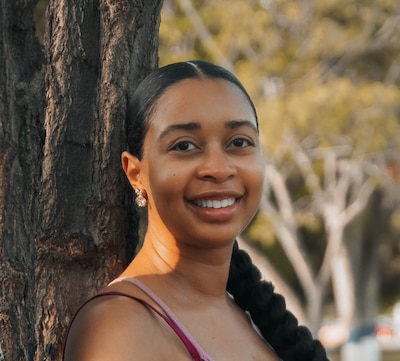
I could have asked questions. I could have requested we compromise. I could have reached out to the principal to express my displeasure. But I did not want to be that parent, especially as one of few Black mothers with children in that school. That parent — as in the one who gets labeled angry or difficult for their advocacy.
Instead, I told a colleague about the incident, “Can you believe her teacher told me I was not allowed in her classroom? That’s a dealbreaker for me. Had I known they had policies like this, I would never have sent her there.”
I’m a parent who sends holiday cards with gifts and who delivers treats for special occasions. Yet, in just one sentence fragment — “parents are not allowed in the classroom” — my desire to do anything more with the school or for the teacher was smoldered.
For decades, policymakers and school personnel have had the unilateral authority to decide who is welcome in schools. In some districts, there are policies that limit approved visitors to people who have passed background checks, drug tests, and completed an arduous volunteer screening. Others decide on the basis of a range of superficial biases, such as attire or hairstyle. In extreme cases, some parents find themselves forbidden to come within a certain number of feet of their children’s school.
I understand that schools must enact policies that enable them to maintain a safe learning environment. But I’m not convinced that all policies do so.
My own email exchange with my daughter’s teacher made me less likely to do the things the school assumes “good” parents do, like volunteer and participate in school-organized social activities. I simply don’t feel welcome. If I cannot come in when I ask politely in advance, why should I come in when you call? Many institutions have visitation policies. I get that. But why can I visit the classroom to volunteer but not to sing “Happy Birthday”? Is my presence only safe when I am fulfilling a school need?
The benefits of engaged families outweigh the risks avoided by keeping parents out.
Perhaps my example sounds trivial. For me, it was anything but. Because if I was treated this way over birthday festivities, what happens when there is an issue that affects my child’s learning or well-being?
Become a Chalkbeat sponsor
As a former elementary school teacher, I know that another set of eyes can foster angst. I understand that guests can interrupt routines. I do not expect teachers to drop everything to accommodate parents, nor do I expect them to always say yes. But I do expect a dialogue that invites alternatives.
What’s clear to me, as a parent and researcher, is that there are too many practices and policies that suggest families stay out of schools and keep their mouths shut. In a group of parents I interviewed about making peace after an unpleasant interaction with school personnel, one mother explained, “I didn’t [resolve the problem] because I have really bad anxiety, and that teacher is a character, and I already knew she was going to tell me I had to schedule a meeting that conflicted with my other obligations.” While this mother wanted to discuss an incident by phone, school policy required a face-to-face meeting, which made the mother anxious and would require her to take time off work.
I would have been content if my daughter’s teacher had written, “Unfortunately, we haven’t been allowing parents in the classroom since the pandemic began. If it’s very important, you can visit for 15 minutes.” They could have asked me to wear a mask or show the results of a negative COVID test.
Or she could have said something like, “I know how important birthdays are to many parents of young children, and I’m sorry to be the one to tell you that parents are not invited in the classroom because …” At least then, I would have felt like she empathized with my situation and had given my request serious consideration.
In my research, I characterize interactions among families and schools by their warmth and openness. I use these terms because they convey feelings that influence how people interact. If a teacher or a parent exudes warmth and openness in their tone, body language, and word choice, there are increased opportunities for proactive two-way communication and the ability to find common ground.
While the offer to take pictures conveyed some warmth on the part of my daughter’s teacher, I did not feel enough openness to my desires as a mother, and I replied accordingly.
It is my sincere hope that, as my daughters grow, I will find schools for them where I can have trusting relationships characterized by mutual respect — schools where my presence in the classroom would never be perceived as a threat. Teachers deserve parents who can be there when they need them. And parents deserve to be welcome in their children’s classrooms.
The benefits of engaged families outweigh the risks avoided by keeping parents out. But most of us are too afraid to find out what happens when schools embrace parents because we have been conditioned to see otherwise.
I really wish my daughter’s teacher would have simply said “Come on in!”
If she had, I would not be second-guessing my decision to enroll her in that school. I would not wonder whether there are some parents who are allowed in the classroom. Most importantly, I would not doubt that her teacher understood the significance of honoring parent requests like mine; I simply wanted to celebrate a milestone.
Shannon Paige Clark, Ph.D., is a mother of two young children. She has worked in and with public schools for nearly 15 years, first as an elementary school teacher and then as an instructional coach. Dr. Clark is a postdoctoral fellow at Northwestern University. She researches Black families’ experiences with schools.
